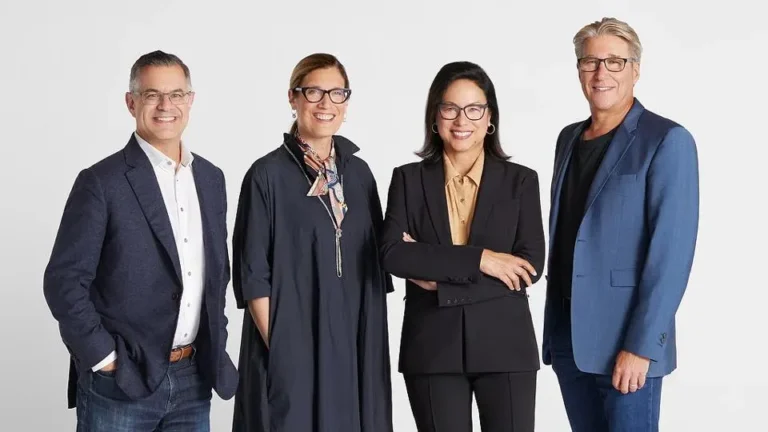Dean DeBiase is a best-selling author and Forbes Contributor reporting on how global leaders and CEOs are rebooting everything from growth, innovation, and technology to talent, culture, competitiveness, and governance across industries and societies.

Want To Live Longer? How Life Extension Industry Will Reboot Health, Wellness, and The Economy

By Dean DeBiase
October 25th, 2022
Do you want to live a better, healthier and longer life? Me too.
Lets go back to 1937, when Albert Szent-Györgyi won a Nobel Prize for his discovery of ascorbic acid—vitamin C—that enables the body to efficiently use carbohydrates, fats, and protein (I use it a lot during cold and flu season, you?). It was a massively consequential discovery, as it not only saved and extended countless lives, but it also contributed to the foundations of modern nutrition. Szent-Györgyi, himself, was blessed with a long life; he died in 1986 at the age of 93. But he might just as well be known for what he said on his 90th birthday: “I wish I could be 75 again!”
No doubt, that comment elicits more than a few eyerolls today. Especially since the CDC has recently downgraded American life expectancy to just 77 years. But could 75 someday be the new 40—an age by which, like Szent-Györgyi, we’re only hitting our stride? Well, if the burgeoning activity of the life extension industry is any indication, we may actually be on the cusp of making it so—and enjoying life to the fullest right up to the extended end. Which brings us to the morbid thought of mortality—that end state most of us seek to delay, if not dodge.
It may strike many as common sense that most causes of death are what we have come to understand as “age-related”: The longer we live, the more likely we are to develop, for example, heart disease, cancer, or Alzheimer’s. Therefore, a reasonable thing one can do to prevent the development of age-related diseases, is to, well, not age. It turns out that’s actually not as flippant as it sounds. So, is that possible and how do we get there?
In short, all strategies for life extension revolve around a combination of three factors, all working together to fortify health and wellness for a longer haul: 1) things you should stop doing (I have a list which I mostly ignore, you?), 2) things you should start doing (honestly part of my same list), and 3) adopting the contributions of new health and wellness technologies and scientific discoveries that are helping to curb aging. All three comprise parts of a budding ecosystem that is growing into a multibillion-dollar industry on an exponential trajectory to displace everything we have come to understand as modern medicine. If just what we know today were fully embraced and actualized, the global economy could also be transformed—and with it, a renaissance of human flourishing.
And we could use it. When ranking countries for life expectancy, the United States often doesn’t make the top 50—despite having the highest healthcare costs per capita in the world, by far. In other words, maybe we’re doing it wrong.
Clearly, something’s got to give. Right?
None of this is lost on the investment community, which is set to plow billions into a nascent industry that is fast approaching its inflection point. Driving that inflection is a fundamental pivot from treating symptoms—the bread and butter of the rapidly collapsing medical-industrial complex—to addressing the root causes of aging and disease. It’s a shift that is ushering in a new and immensely disruptive paradigm that some analysts envision creating a global market approaching $300B by 2030. It’s likely bigger when you add in personalized skin health and beauty—not to mention food.
Again, like many such watershed moments, this is a story of convergences. It’s a perfect storm comprising new and surprising discoveries about the workings of the human body, myriad innovative technologies, coupled with an ever-increasing geriatric population. Now add to this mix an explosion in chronic diseases and a growing demand for more Personalized, Precise, Preventive, and Participatory aging therapeutics (the so-called “4 Ps”) and we have a movement.
Beyond its potential for profitability, though, the longevity movement benefits from a certain intrinsic appeal: it could be a tremendous positive impact for humanity. Startups and leading global organizations are diligently at work developing the next level of health, beauty and wellness products, services and treatments—from delivering mass-personalization AI technology to help consumers choose at Revieve, to science-driven wellness at Thorne HealthTech, to curing Alzheimer’s at Genentech—all with investments beginning to show promise.
Another leading catalyst in shifting the world away from the traditional disease-focused regime in favor of targeting root causes of age-advancing chronic illnesses, is Viome—a life sciences company that has pioneered the field of human gut microbiome diagnostics and treatment. I took a look under the hood to learn what’s behind this longevity science and how are they rebooting an industry.
The big idea behind Viome’s science is simultaneously cutting edge and ancient (stay with me here as we unpack this). It was actually first articulated in the 4th century BC—by Hippocrates of Kos. “Let food be thy medicine,” he proclaimed, “and medicine be thy food.” As investors in next-gen food companies, like Manna Tree, will tell you—he was onto something.
You can think of the gut microbiome as the “Chief Architect” of your health. The trillions of microbes that reside in your gut help you digest food, absorb nutrients, maintain a healthy weight, neutralize toxins, fight off bad bacteria, and many other functions that are responsible for keeping you alive and healthy. How the microbes in your gut respond to the food you eat creates a chain reaction that can be beneficial to you or, if you’re eating the wrong foods, can promote inflammatory activity and microbial imbalance, or, dysbiosis. In other words, the very conditions that work to curtail lifespan.
It turns out that illnesses such as cancer, diabetes, heart disease, stroke, Parkinson’s, Crohn’s, Alzheimer’s, arthritis, depression, and many other debilitating conditions share a common denominators—chronic inflammation for one. In fact, chronic inflammation is both a precursor and prerequisite to the onset and development of today’s deadliest diseases—and aging. And all these conditions are pointing to the gut.
It’s to these ends that Viome’s 50+ health scores reveal one’s underlying contributors to poor health—and more importantly, to identifying the microbiome-based correctives that can extend both lifespan and healthspan. Affirming both Hippocrates and Viome, Dr. Sherry A. Rogers astutely quipped, “The road to health is paved with good intestines!”
In a free-market, innovation-economy, Viome is certainly not alone in this endeavor. Life Biosciences and many others are also targeting the biology of aging. The emerging sector operates on the premise that aging is in fact modifiable, being caused by biological mechanisms that can be targeted therapeutically. Elysium is another. It is working to make practical the myriad scientific advancements in aging research that in turn are leading to compelling new developments that will, “fundamentally redefine every aspect of how we think about healthcare”. Sampo Parkkinen, Revieve’s Founder and CEO agrees and believes that the world’s leading brands and retailers can help consumers personalize their health, beauty, and wellness through relationship-driven commerce: “Bringing personalized solutions to worlds consumers must go beyond healthcare, into the daily products, services, and treatments people use, from skincare and beauty products to supplements and food, it should all be on the table where consumers shop, he comments.”
The key to moving life expectancy forward is turning back the biological clock. The old cliché goes, “If I knew I was going to live this long, I’d have taken better care of myself!” Or, as one of my Mom’s favorites, actress Mae West, said, “You’re never too old to become younger.” The good news is that there’s no time like the present to reboot and begin preparing for a healthy future. And lifestyle—marked by a nutritionally-rich diet (most tell us to ditch the fast food, but not everyone can), proper exercise (yes, there is an inverse relationship between physical activity and mortality), adequate sleep (I don’t get enough, you?), good stress management (how are you doing?)—is also central to any life extension regime. We have been told all of this before, yet we still struggle.
That said, a central goal of lifestyle modification is not only to reduce the incidence of disease but promote healthy, successful aging. It’s true that one’s biological age need not match chronological age. Consider Viome founder Naveen Jain. “I am 63 years old,” he says, “but my biological age is now 10 years younger. I have achieved this in the last two years, simply by understanding how my body works, using Viome’s tools, which tell me what to eat and why and what to avoid and why. It then details the specific nutrients my body needs to live a disease-free life.”
In addition to its AI-driven gut microbiome tests, the company is beginning to produce personalized supplements and formulas that combine the necessary nutrients into daily capsules, thus eliminating the need to stock dozens of products. Consequently, Naveen actually does anticipate reaching 75 but registering a biological age of just 40. Not that he expects to age in reverse, a la “The Curious Case of Benjamin Button.” Nor is this about achieving immortality. Rather, longevity science is really more about enabling people to be as healthy as possible for as long as they are alive. It’s about having the strength, energy, and vitality to do what they want to do, even possibly at 100.
I know what you’re thinking, Naveen is the CEO and didn’t actor George Burns live to be 100 while famously smoking cigars every day? Yes, however, I’ve watched his positive transformation over the years, along with Viome customer data, the results are remarkably noticeable (but alas, I’m not a healthcare professional). The early industry data now has supplement manufacturers, and companies like Amway, taking note and working determine how to globally scale and deliver personalized nutrition through mass-customization. As I have said at Northwestern University’s Kellogg School of Management, look for a variety of co-created innovation and delivery partnerships—between upstarts and global 1000’s—in this space starting next year.
Want another view on potential impacts? Longer lifespans are an effect of the measures anyone can take to improve their health—and it seems to also be an emerging societal and economic imperative. Consider, for example, if everyone in the world were to lower their biological age by even a few years, the global disease burden would be reduced dramatically. Today, according to the CDC, six in 10 U.S. adults suffer chronic health conditions; four in 10 have two or more of these diseases. Some of these diseases are both debilitating and expensive. According to estimates by the World Economic Forum, between 2010 and 2030, the total cost to the world’s health systems will approach $50T (yes trillions). Could we cut that in half? The leaders in the life extension space—both startups and the big-dogs—believe so. And supporting data is mounting.
Looking for a bottom line? Me too, how’s this: if you can maintain good gut health, then that good gut health will keep the rest of you healthy. If, on the other hand, the gut microbiota are in dysbiosis, then you’re up for diseases caused by the chronic inflammation that inevitably results—the very conditions that are know to slash human life expectancy by half.
When the experts declare the upper limits of life expectancy, we believe it like some law of the universe. When someone dies at, say, 80, we accept that they’ve lived a good long life. We’ve become conditioned to believe it, and like so many other things connected to one’s mindset, it becomes a self-fulfilling prophecy. “Normal” cholesterol in a society where it’s “normal” to drop dead of a heart attack really should not be considered a good thing. Right? We don’t achieve more than we expect. But if we do expect more, it must begin with an understanding of what’s really going on in the body. We are starting to do that now, thanks to the biological, cellular, and genetic ground truths established by the sciences and technologies advanced by the likes of Viome, Life BioSciences, Elysium, and many other emerging players the world will soon hear about.
“But what about genes?” you might ask. “Surely, one’s genetic makeup affects lifespan, right?” Interestingly, we are learning that genetics may be responsible for only a very small percentage of human diseases—the vast majority are triggered by environmental and lifestyle factors. And both are of tremendous consequence to the makeup of one’s gut microbiome, which, we are now understanding, can be the chief driver of genetic expression (or epigenetics), turning genes on and off depending upon which microbes are present in the gut.
So, while some people do hit the genetic lottery, like George Burns, the rest of us can improve our luck through lifestyle choices. But the difference—now those choices need to be informed. This is where Viome’s Human Gene Expression test comes in. With its origins in biodefense science developed at Los Alamos National Lab, it reveals a true state of one’s overall health, the measurable potential for developing disease, and the nutritional corrective actions one can take to restore the homeostasis that is essential to healthy longevity. Again, it seems if you can improve the health of your gut microbiome, you could also take some of your genetic fate into your own hands.
In the end, though, when all is said and done, given the events of the past few years, many have learned that there is more to life than increasing its length. To this end, we would all do well to heed the words of the 14th century holy man who wrote, “It is vanity to wish for length of life, and to care little that the life should be well spent.” Indeed, if we’re to be older, we’ll also need to be wiser.






